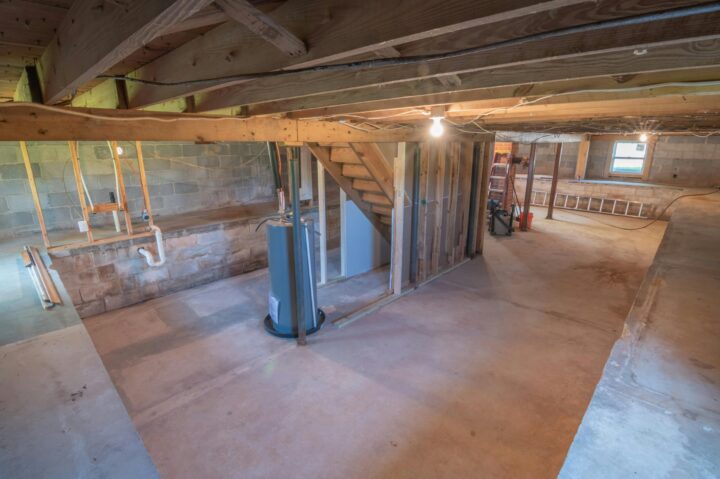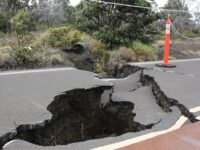The following contribution is from another author.
You do everything you can to keep your home safe. You check your smoke alarms, lock your doors at night, and double-check that the stove is off. But have you ever thought about the invisible danger that could be coming from your water heater—a carbon monoxide leak?
This danger comes with no smell, color, or significant warning signs—until its effects start to take hold. Even a small leak can cause headaches and dizziness, while prolonged exposure can be deadly. Scary, right? But don’t worry—keeping your family safe is easier than you think.
This article will walk you through everything you need to know— how to prevent these leaks and what to do if you suspect a problem. Let’s dive in!
What is Carbon Monoxide?
Carbon monoxide (CO) is a toxic gas that forms when fuels like natural gas, propane, or oil don’t burn completely. It’s often called the “silent killer” because it has no odor or color, making it impossible to detect without the right equipment.
When inhaled, CO replaces oxygen in the bloodstream, preventing vital organs like the brain and heart from getting the needed oxygen. Small amounts can cause headaches, dizziness, nausea, and confusion. Prolonged exposure or high levels can lead to unconsciousness, organ damage, and even death.
Preventive Measures to Avoid The Leaks
Preventing this hidden danger doesn’t have to be complicated. A few simple steps can go a long way in keeping your home safe. Here’s what you need to do:
Ensure Proper Installation
One of the most common reasons for a carbon monoxide leak is improper installation. If a unit isn’t installed correctly, it can lead to gas leaks, poor ventilation, and incomplete combustion. That’s why it’s always best to have a professional handle the installation. A trained and experienced expert will ensure that your water heater is vented correctly and meets all safety requirements.
Regular Maintenance
Would you drive your car for years without an oil change? No, right? So, just like your car, your water heater needs regular check-ups to stay safe. Over time, dirt and debris can build up in the burner, reducing efficiency. This increases the risk of the leak. So, always schedule an annual inspection with a professional to keep your unit running safely.
Proper Ventilation
Your water heater needs fresh air to burn fuel efficiently. If the ventilation system is blocked or damaged, toxic gas can build up in your home. Make sure vents are clear and functioning properly. And if you ever notice rust, soot, or moisture buildup around your heater, it could be a sign that gases aren’t venting correctly.
Check the Pilot Light
A healthy pilot light burns blue. If yours is flickering or turning yellow, that’s a warning sign. A weak or discolored flame can mean incomplete combustion. This increases the risk of carbon monoxide exposure. If you notice this, don’t ignore it—have a professional check it right away.
Install Detectors
Since CO has no smell or taste, detectors are your best defense. Install them near sleeping areas and close to your water heater. Check the batteries regularly and replace the detectors every 5–7 years. A working detector can alert you before the situation becomes dangerous.
Replace Old Water Heaters
Water heaters don’t last forever. If yours is over 10–15 years old, it may not be as safe or efficient as it once was. Older units are more likely to develop leaks and ventilation issues. Upgrading to a newer, more energy-efficient model can reduce risks and improve performance. If you’re unsure about your unit’s age, check the manufacturer’s label or ask a professional for advice.
What to Do If You Suspect a Leak
If you ever think there might be a CO leak in your home, don’t wait to take action. Here’s what you need to do immediately:
Evacuate Immediately
The moment you suspect a leak, get everyone out of the house. Fresh air is crucial, and staying inside could make the situation worse. Even if symptoms seem mild, don’t take any chances.
Call Emergency Services
Once you’re outside, call 911 or your local fire department. Let them know you suspect a CO leak. They have the right equipment to detect the levels and make sure it’s safe to return.
Do Not Re-enter Until Cleared
Even if you feel fine, don’t go back inside until professionals confirm it’s safe. CO exposure can have delayed effects, and lingering gas could still pose a danger. Wait for an official all-clear before returning.
To Wrap Up
Your water heater is an essential part of your home, but without proper care, it can pose a hidden danger. A carbon monoxide leak can happen silently, but the good news is that it’s entirely preventable. Regular maintenance, proper ventilation, and installing CO detectors are simple steps that can keep you and your family safe. So, take action today to ensure your home remains a safe place for everyone.
















